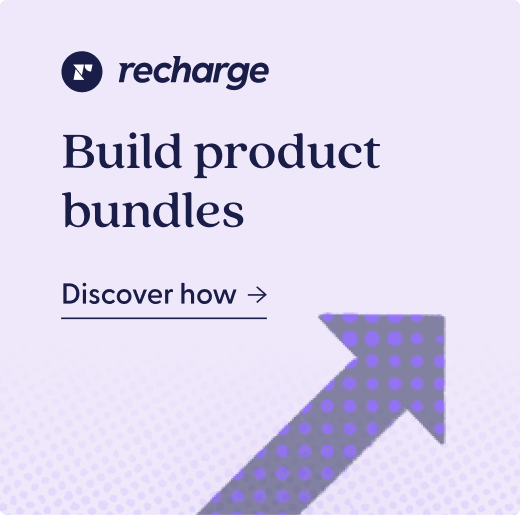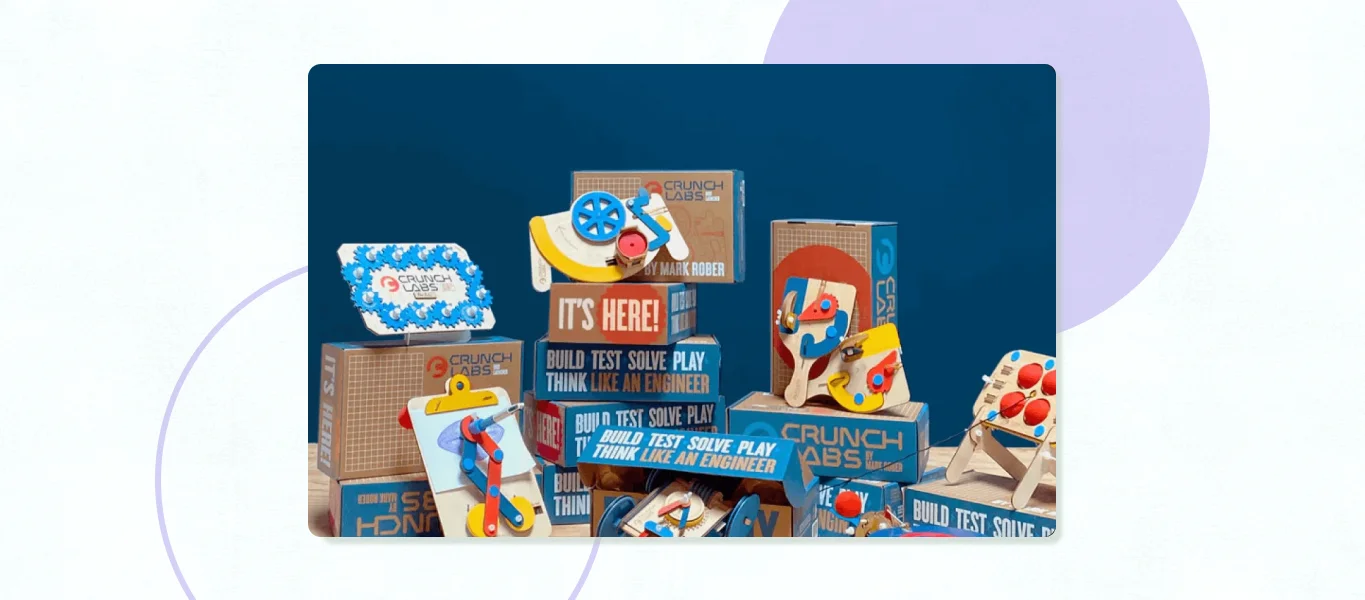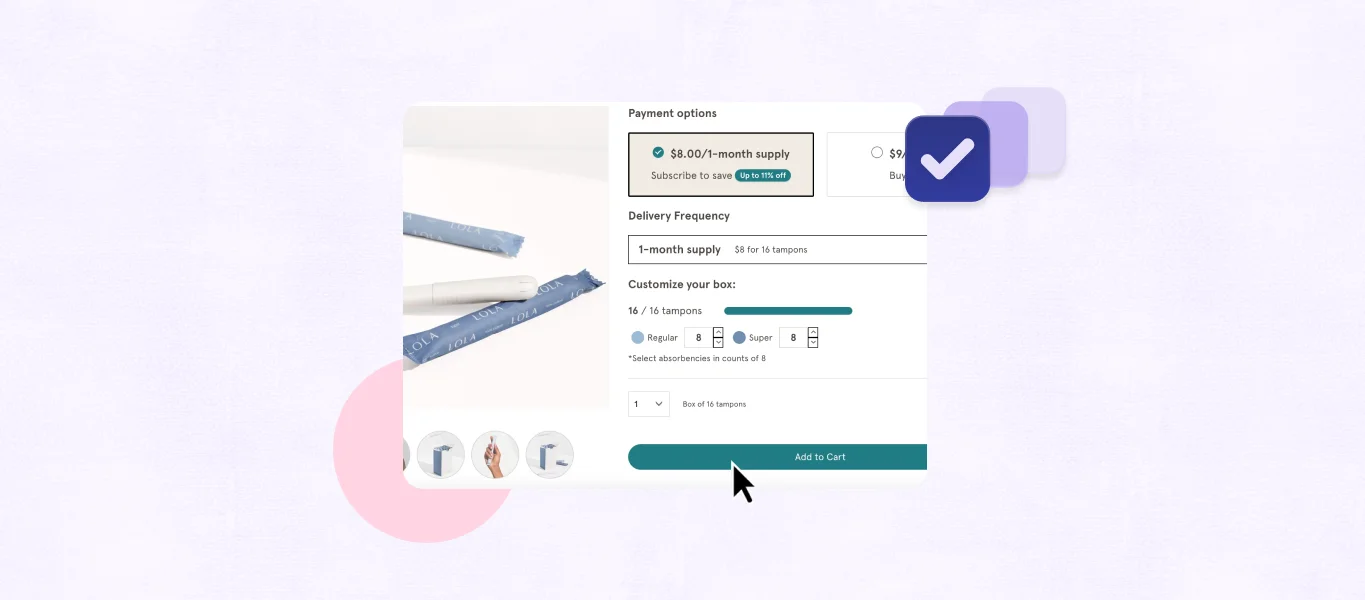Most businesses will always have a goal to generate new revenue streams. However, adding subscriptions to your existing ecommerce business can open up many doors beyond the obvious new revenue potential.
Most ecommerce businesses know that adding product lines to your site is not enough to generate new sales. Ecommerce models must account for the full sales cycle, and subscriptions are no different.
The subscription model offers businesses a new way to connect with their customers, bolster those relationships, and find innovative ways to satisfy them cycle over cycle. Here are some of the ways your business can gain value from subscriptions—beyond boosting your bottom line.
Key takeaways
- Subscriptions offer a unique opportunity for brands to boost customer loyalty.
- By providing subscribers with greater opportunities for customization and flexibility, you set the stage for increased LTV.
- Strategically leveraging data insights can allow you to innovate on your products more effectively.
The benefits of subscriptions
Boosting brand loyalty
Most ecommerce brands know that the best types of customers are repeat customers. Little to no acquisition costs, better product placement, a reduced need for customer service, lower risk of fraud, and a higher chance of brand evangelism are just a few of the reasons why brands love customers who buy over and over again.
However, these types of customers don’t just appear overnight. Your company must have great products, an easily navigable website, strong customer service, and quick and easy ecommerce fulfillment options. If all phases of the ecommerce customer lifecycle are in order, customers will be more likely to buy repeatedly. After a few purchases, these types of customers have demonstrated a certain level of brand loyalty and are strong candidates for the subscription model.
Those who sign up for daily, weekly, or monthly deliveries are clearly fans of your brand. They use your products consistently and have decided to make your company a part of their lives. Transferring your loyal customers to a subscription model synchronizes the relationship between brand and customer, which opens up even greater opportunities to maximize customer lifetime value (LTV).
Predictable revenue from repeat customers
By creating an ecosystem of loyal customers, your business doesn’t just gain brand evangelists and enhanced LTV year-over-year—your finances and accounting also become much clearer. By implementing a subscription model, you will be able to more accurately predict how much revenue those products will drive in each cycle.
As subscriber counts increase or decrease, you can model out future profit margins. This allows for enhanced insight into what products are working, and empowers your C-suite to better allocate funds and resources across the company.
A subscription model can surface greater awareness and confidence to invest in new product innovation, departments, marketing campaigns, and other lead generating opportunities. Many sales organizations fear overspending and overinvesting in areas that may not be fruitful down the line. By leveraging your subscription revenue, you can more effectively understand your numbers and more wisely allocate funds for reinvestment.
Increasing AOV & LTV through upsells & cross-sells
Subscription customers are loyal to your brand and trust your products, creating the perfect landing zone to offer new products and services that increase the value of each order.
Let’s use a makeup brand as an example. Customer A receives an eye cream and lip kit every three months, but they do not subscribe to any other product lines. They have demonstrated their brand loyalty through consistent consumption of eye cream and lip kits. In this case, we would encourage the brand to send test samples in the next box to encourage Customer A to try other product lines.
The merchandising for upsells and cross-sells can also be done digitally to reduce costs. Suggesting products for customers to add to their carts, or sending personalized emails and SMS messages that serve the same purpose, can fortify the bond between brand and consumer while opening new doors for higher average order value (AOV). It is much easier to upsell to an existing customer than to convert a new customer. After all, the existing customer already has their foot in the door with your brand.
Increasing login & account-based brand value
We all know that customer data is more important than ever. Knowing who your customers are, what they like, their buying habits, and their wants and needs helps bridge the knowledge gap between customer and brand.
By mandating the account creation process for subscribers, you are absorbing a great deal of customer insights. Remarketing campaigns, upsells, cross-sells, personalized branding, and promotional offers are just some of the ways you can reach your customers and drive more revenue.
Eliminating recurring billing processes
Once a customer signs up for recurring deliveries, they have entered their fulfillment information once and for all—unless, of course, they need to update it later on due to an address change. Cart abandonment is one of the most predominant issues that ecommerce companies face, so reducing or eliminating this step is paramount for prolonged revenue growth.
Subscription models do not require customer action, which means there is far less likelihood that the order is canceled due to the cumbersome process of filling out credit card and delivery details. By eliminating this point of friction, your brand can focus on product satisfaction, fast fulfillment, and great customer service instead of cart abandonment.
Boosting conversions through trials & promotions
You can offer trials and promotions that entice people to try your products much more easily with subscriptions than other methods. For instance, one free month could get someone hooked for six months of your product or services.
Better product innovation
In tune with the benefit of more accurate profit forecasting, consistent revenue through subscriptions permits higher levels of new product development. Through data insights, you can learn which products are consistently ordered and where you may want to double down or make new investments.
Perhaps the best place to start for your brand is to offer new flavors of your bestseller. Or, you might consider creating a complementary product to your bestseller to complete the regiment. Your most loyal customers know your brand the best—you should leverage their data to make the best decisions for new product creation moving forward.
The power of choice & personalization in subscriptions
Your customers are human, and humans like control. Control of product development, product choice, delivery cadence, and billing sequencing are handed over to the customer to provision.
We’ve been speaking to the power of personalization for years now, and robust subscription models take advantage of this. From offering custom boxes and complementary product add-ons to options to skip a delivery or split payments, there are many choices that brands can give their customers to give them greater control and flexibility.
Customers want to feel like they are a part of the brand and that their opinion matters. By allowing for greater personalization in your subscription offering, you set the stage for reducing churn and maximizing LTV.



